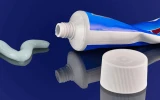The 7 Items You Need in Your Natural Cleaning Kit
Published on Jun 30, 2020

Natural homemade cleaners are so hot right now. But it can be tough to know where to start. If you haven’t yet caught the natural cleaning bug, here are four reasons to get on board.
Why are Homemade Natural Cleaners Better?
- Non-toxic, therefore better for you and your family’s health
- Better for the environment
- Cheaper than a cupboard full of chemicals
- Just as effective as commercial cleaners on most household chores We’ve got your ultimate natural cleaning guide here; from the 7 items you need in your cleaning arsenal to some of the best chores to tackle today using your new kit.
What You Need in Your Natural Cleaning Kit
1. Vinegar

There is a reason vinegar tops this list. Vinegar (white is recommended) can be used on myriad tasks around the home and is usually the base of many natural cleaning solutions.
Vinegar is generally 5% acidity, which helps it to loosen mineral deposits while being a great disinfectant that can destroy some bacteria and viruses.
How to Use Vinegar for Cleaning
- A 1:5 diluted solution can be used to shine up grimy windows. Use a 1:1 solution if you’re cleaning shower screens, given the stubborn soap scum that accumulates there.
- Avoid cleaning wood floors and stone tiles/benches with vinegar however, as an acid, it will etch your stone over time and wear down wood floor finishes.
- Also, if you aren’t a fan of the smell (although it will dissipate after a short period), add a squeeze of lemon to offset the odour.
We have a more in-depth article on the many uses of vinegar.
2. Lemons

This zesty fruit has been heralded for generations for its cleaning ability. Thanks to its antibacterial properties and high acidity, lemon is able to cut through alkaline substances as well as grease. It doesn’t hurt that it smells super fresh, too! Add some extra lemons to this week’s shopping list and see how you go.
How to Use Lemons for Cleaning
Keep half a piece of lemon at the top of your fridge at all times – people swear it keeps stinky fridge odours away.
3. Baking Soda

Not to be confused with baking powder, baking soda actually packs a pretty powerful cleaning punch. It’s a mild alkaline that reacts with water to break down grease. As a gentle abrasive, it can also scrub away grit or grime from stubborn or porous surfaces.
How to use Baking Soda for Cleaning
With a young one at home, I love this tip. Baby vomit smells are history with a little baking soda on hand. Just remove any solid pieces with a spatula (or similar), sprinkle baking soda liberally on the area, pop a towel over it, leave for half an hour at least and then vacuum it up!
Want more tips? Here are some other ways baking soda can really ramp up your natural cleaning regime.
4. Essential Oils

Just a few drops of an essential oil can add some extra kick to your cleaning game. Essential oils are safe, non-toxic and many of them have antibacterial and antiviral properties. While Tea Tree Oil is one of the best oils for everyday cleaning around the home, oils including lemon, orange, eucalyptus and lavender are also popular options.
How to Use Essential Oils at Home
I personally love the smell of peppermint, so I like to add a little to my vinegar and water shower screen cleaning solution. It smells phenomenal and works a treat! Here’s the peppermint shower spray recipe for you to try.
5. Glass Spray Bottle

These are much better for the environment than plastic versions, while reusing them over and over (instead of buying a new commercial cleaner every few weeks) will save you money.
Amber glass spray bottles are also recommended if you are adding essential oils to your natural cleaning solutions as some properties of the oils can break down plastic. Sunlight can also cause oils to expire early, which is why buying spray bottles in amber is recommended.
You can usually pick up glass bottles from Target for $3 or online for prices ranging from $3-$10. If you have a few bottles at home, remember to label them!
6. Microfibre Cloth

Fibres of polyester and nylon are fused together and then split apart, creating microfibres. These fibres are so fine that clean grease and grime better than your average cleaning cloth, and they are even capable of removing bacteria and microbes.
How to Use Microfibre Cloths for Cleaning
Use them either dry or wet for most of your jobs around the home instead of your usual cloths or paper towels. Make sure you buy them in different colours for your bathroom, kitchen or glass tasks.
7. Old Toothbrush

The tools you use are important and I’ve found an old toothbrush to be just as good as any expensive cleaning equipment for many jobs. They’re great for scrubbing grout lines and other porous surfaces or for cleaning crevices (like all areas of taps and faucets, for example) that your cloth won’t reach.
How to Use an Old Toothbrush for Cleaning
Mix 1/2 cup of baking soda, 1 small squirt of dishwashing detergent and 1 cup of water in a bowl to form a slightly runny paste. Place the paste on your dirty grout lines and let it sit for around 15-20 minutes. Use the toothbrush to give it a good scrub and then rinse/wipe off.
And your kit is complete! Please note that even though most cleaning jobs can be mastered with natural products, some chores may require chemicals to tackle the task effectively.




